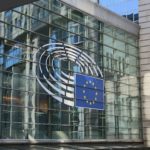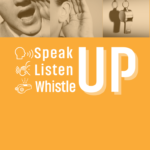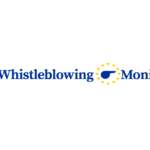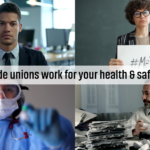Newsletter How the French presidency can deliver for European workers 17.12.2021DigitalisationEmploymentOccupational health and safetyPsychosocial risksSocial dialogue As Emmanuel Macron outlines his presidency priorities, a just transition must be central to…

Newsletter Progress as European Commission delivers protections for platform workers 9.12.2021EmploymentOccupational health and safetyOrganisingWorking conditions Many of the calls from trade unions are answered as draft directive outlines how platforms…

At the conclusion of his second term in office, Martin Jefflén departs Eurocadres for a new venture in trade unionism

A French national and UGICT-CGT member, Ms Glaise received an overwhelming majority from Eurocadres members.

Today Eurocadres members outlined the trade union’s vision for the future of work in Europe, during our 6th congress in Madrid, Spain.

In a decisive majority, the European Parliament calls for a ban on the use of facial recognition in public places by law enforcement.

This week, Eurocadres spoke with Euronews’ on the importance of the directive.

As part of the second-stage consultation of European social partners, we reaffirm the need for further EU action to ensure basic labour standards and rights to platforms’ workers.

Kevin Flynn joins as new Communications and Policy Officer, while Head of EU Affairs, Janina Mackiewicz, departs after 7 years at Eurocadres.

The new directive on psychosocial risks which is needed is lacking in the new EU Occupational Health & Safety Strategic Framework 2021-2027.

Eurocadres launched a new guide for trade unions and employers on setting up internal whistleblowing channels.

Eurocadres is organising a launch of the new guide on internal whistleblowing channels that can be used by trade unions and employers.

The European cross-sectoral social partners concluded in June 2020 a new autonomous framework agreement on digitalisation. Eurocadres will in a series of 4 workshops discuss strategies for implementation of the agreement with its member organisations.

Eurocadres in partnership with the Whistleblowing International Network (WIN) and Transparency International Europe are delighted to announce the development and launch of a new online platform to monitor transposition and implementation of the EU Directive on Whistleblowing (2019/1937) across Europe.

Eurocadres has developed an online self-learning tool for trade union representatives about whistleblowing channels in workplaces.

Join in for the launch of the online tool and to hear why it is important that trade unions are involved in whistleblowing work.

In the beginning of March the European Commission submitted a directive proposal on pay transparency, which aims at targeting the right to equal pay between women and men for equal work or work of equal value.

In May 2021 EU leaders, heads of state and governments and social partners gathered in Porto, Portugal for the Social Summit where the action plan implementing the pillar was signed by the representatives of EU institutions and social partners. Martin Jefflén, participating for Eurocadres, underlined the need for lifelong learning and investments in skills and education.

Going back to pre-covid times of 100% office work will most likely not happen. A vast majority of organisations will adopt hybrid models, allowing more time for telework and remote working.

Trade unions fight for better health & safety in the workplace and in law and together with safety representatives play a vital role in ensuring health and safety, says Eurocadres together with 10 European trade union organisations for the 28 April International Workers Memorial Day.

